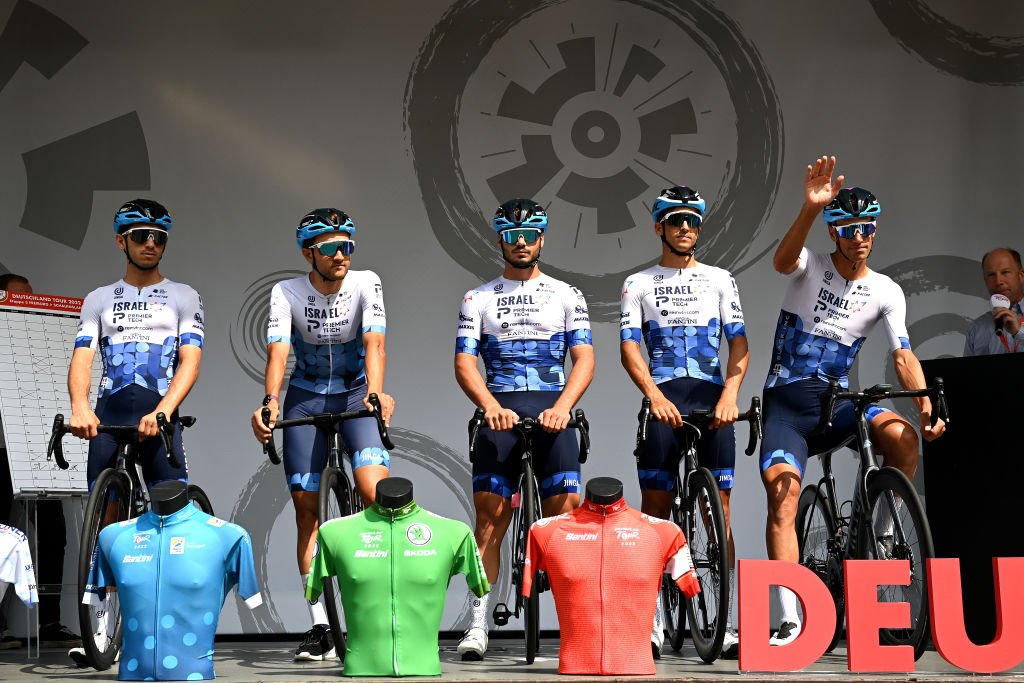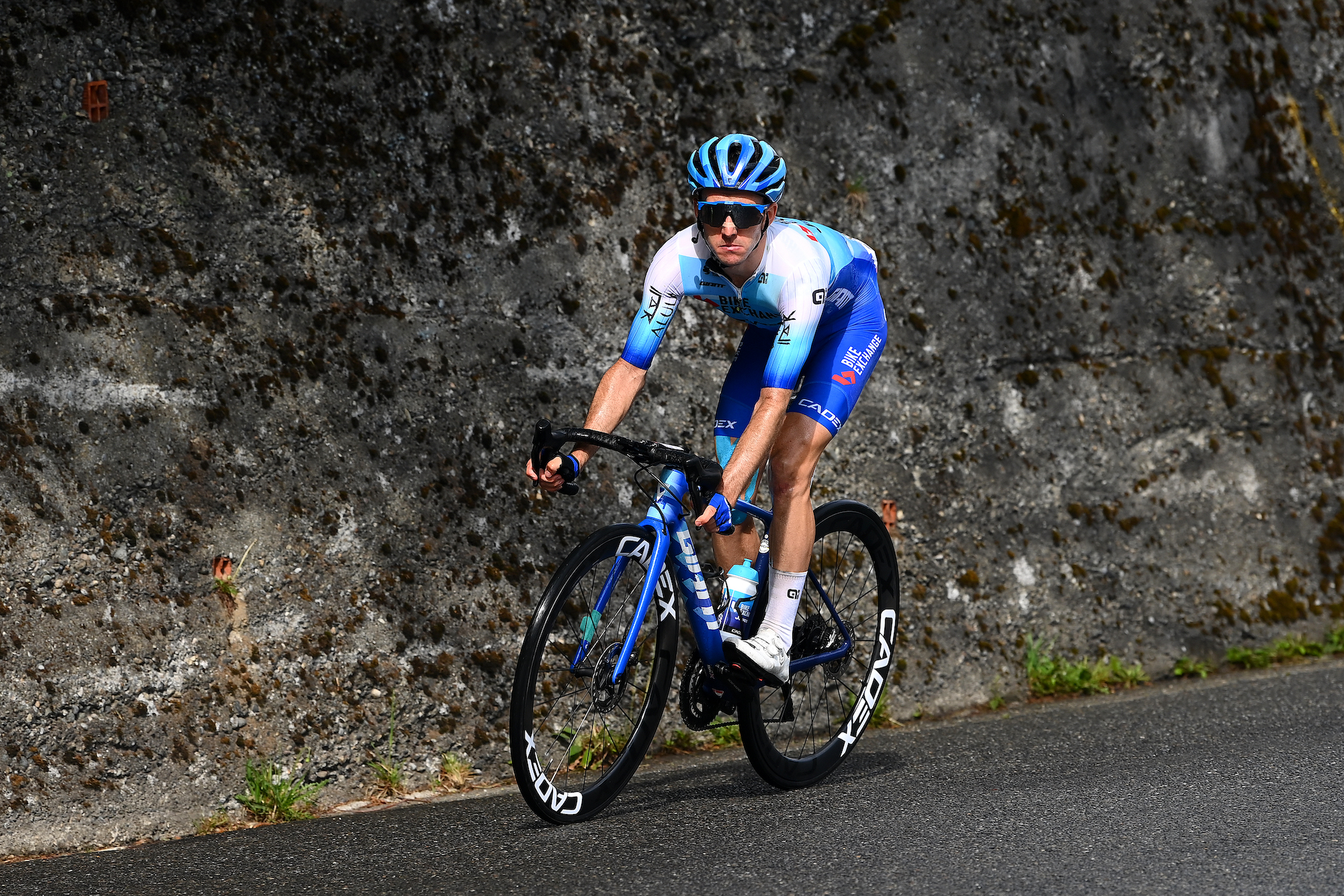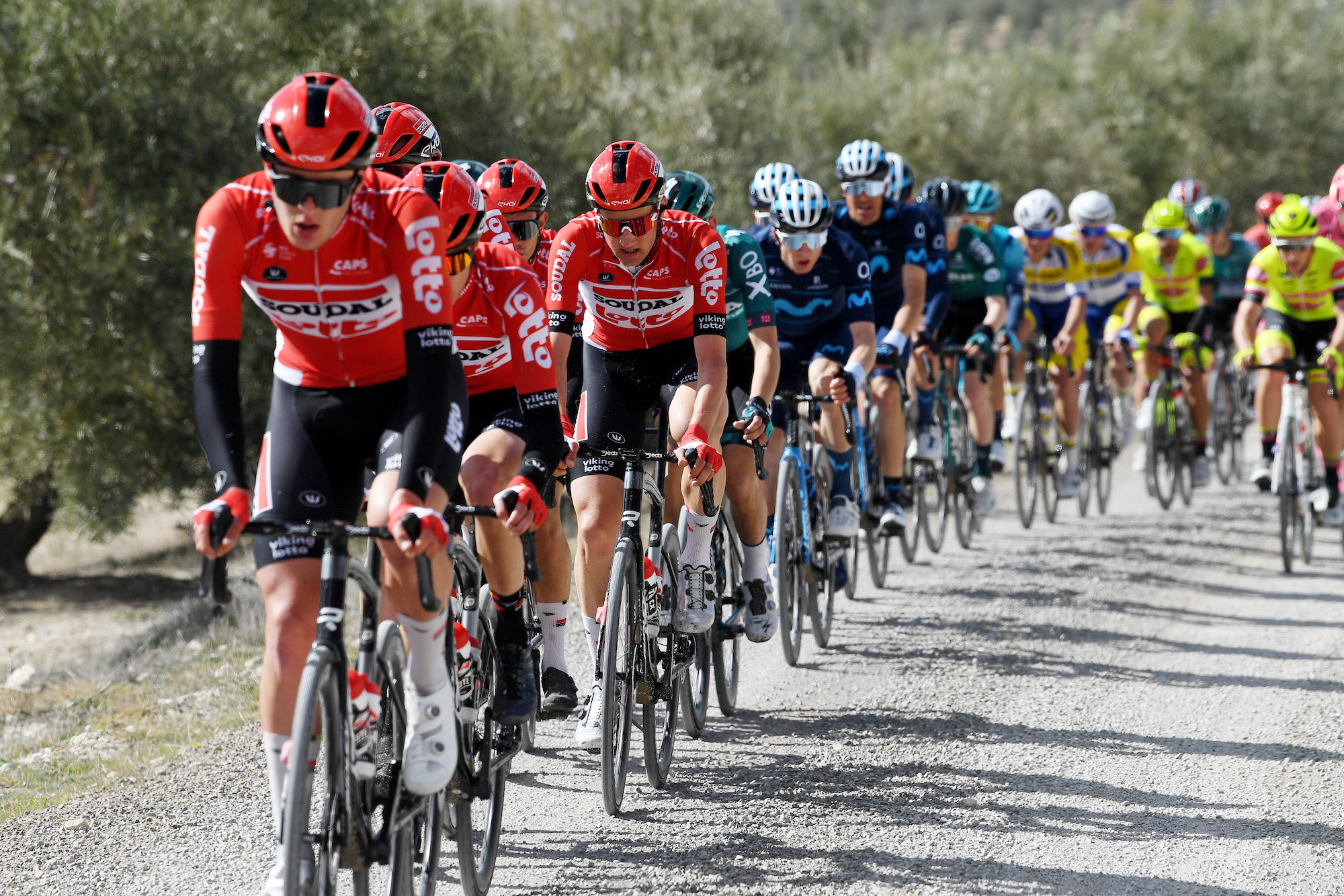What is going on with relegation and UCI points and why does everyone care now?
We are moving past squeaky bum time and heading for the drop


The latest race content, interviews, features, reviews and expert buying guides, direct to your inbox!
You are now subscribed
Your newsletter sign-up was successful
Relegation from the WorldTour is back in the news, after bubbling away for most of this year in the background, we have almost reached the point of no return for some teams, with opportunities to gain points dwindling.
After the Vuelta a España - for which points do not get awarded until all racing is done - there are just three WorldTour events left this year, all one-day races, 15 .Pro races, 21 .1 races, and the World Championships.
That means 7,783 UCI points are still on offer for the winners of all these races, and the individual stages contained therein, plus thousands more for podium finishes and more minor placings. However, these are unlikely to go to the select few teams who need them most, those that are struggling at the bottom of the UCI's table.
At present, both Lotto Soudal and Israel-Premier Tech, two current WorldTour teams, face relegation, while Alpecin-Deceuninck and Arkéa Samsic would be promoted to cycling's top table. Lotto can take comfort from the fact that, as things stand, they would still gain access to the Grand Tours next year, but Israel would not, with TotalEnergies occupying this second spot.
There are currently only 619 points between Movistar, BikeExchange, EF Education-EasyPost and Cofidis in the four spots above relegation; Movistar are 288 points ahead of Lotto Soudal, who currently are in the red zone.
Suddenly, things are looking awfully tight at the bottom, and both racing and non-racing decisions are affecting the rankings.

For example, Simon Yates' withdrawal from the Vuelta (because of Covid) has deprived his BikeExchange team of potentially hundreds of crucial points that they would stand to gain from a high finish on general classification.
The latest race content, interviews, features, reviews and expert buying guides, direct to your inbox!
While the Australian team bounced back with a stage win on Wednesday, through Kaden Groves, the 100 points gained here will do little to quell fears of the drop.
With more and more riders dropping out of the Vuelta after catching the virus, in a year when illness has seemingly had more of an impact than usual, it is points that are being lost, not just results.
This was seemingly what Tao Geoghegan Hart (Ineos Grenadiers) was getting at in a hastily deleted tweet sent on Wednesday morning: "How can we have a relegation system, risking the future of decade old teams, during these unprecedented times of sickness. Sport is not fair, granted. But this just doesn’t seem right, not now and not like this. I would like to see solidarity between all riders, of all teams."
Solidarity is a tricky concept in the peloton, with the official union, the CPA, famously unloved, and little binding riders together across teams, nationalities, ages, goals and more. This is what made Geoghegan Hart's intervention interesting; his lack of dog in the fight, as Ineos are hardly one of those threatened with relegation.
What those in the teams striving for promotion to the top table, like Alpecin and Arkéa, make of this call for solidarity is a different matter. The relegation system might threaten the future of "decade old teams" but to not have a system would threaten new investment in the sport.
The boss of ProTeam Uno-X, Vegar Kulset, tweeted: "Imagine a Premier League club that, at the end of the season and close to relegation, complains that due to injuries and covid, the relegation system is unfair. And the final argument - we are an old club and do not deserve this."
Away from sickness, Arkéa's push to the WorldTour has been threatened by Nairo Quintana's positive test for tramadol at the Tour de France, which has deprived the French team of 400 UCI points after he was disqualified from the race. His sixth place therefore no longer exists. He has appealed to the Court of Arbitration for Sport, with the potential for court rulings affecting the final UCI points table.
There are squads who have reportedly asked their riders not to attend the World Championships in Australia in order to concentrate on gaining points at smaller races, while tactics to boost point totals - and possibly not risk everything by going for the win - are clear to see.
There are even reports that riders will leave the Vuelta early to target other races for UCI points, which seems to undermine the whole point of competition at the highest level; the system is leading to weird decisions.
What's going on with relegation and UCI points?

As a sport, cycling often struggles to present an overarching narrative, especially to the casual viewer. Individual events mean a lot more than any kind of structure to the season - the Tour de France, Paris-Roubaix and the World Championships are big events across the whole year - while any kind of structure is at best noticed at the end of the year, at worst ignored altogether.
To the casual viewer, as most are, any kind of thinking beyond a single race or a series of events like the cobbled Classics, is alien. Yet for many years there has been a unified attempt at some kind of system or league across the season, to link things up, to make Dwars door Vlaanderen connect with the Tour of Poland, or the UAE Tour with the GP de Quebec.
The current system for men’s cycling, devised by the UCI, the sport’s governing body, is the WorldTour, with the ProSeries sitting below it, the successors to the Super Prestige Pernod and UCI Road World Cup. There are 18 WorldTour teams, the ones you have heard of, and they get to automatically go to the WorldTour races, the ones you have heard of. Below that, there is the ProSeries, of 17 teams, which you have probably heard of, who go to races that you probably know, and sometimes, confusingly, to the races you definitely know. Below this again are Continental teams, who mostly go to the races you don’t really pay attention to.
Understand?
Since the inauguration of the WorldTour, 13 long seasons ago, there has been an end of season ranking, which is normally, rightfully, ignored; it is often either superfluous or odd (Tadej Pogačar and Deceuninck Quick-Step won last year).
Still, the ranking exists.
This league table matters more than ever this year, because the 18 slots for teams who will form the WorldTour for the next three seasons are up for grabs. Some squads who are currently at the top table face relegation, while ProTeams below eye up their spots, and therefore automatic invites to the biggest races.
All races have UCI points and riders score points based on their finishing positions, this is how the league table is set, although it is only the top ten scorers in a team who actually contribute to the overall total. It is the points total across 2020, 2021 and 2022 that counts.
Points do not just go to winners, they go to top finishers, up to the top 25 in certain races.
If all of this is not confusing enough, different races have different points. You win 1,000 points for winning the Tour de France, for example - lucky Jumbo-Visma - and 125 points for winning the Volta Limburg Classic, as Arnaud de Lie did for Lotto Soudal.
There is one more layer of added complexity, which is that the two teams with the highest points total this year - and this year only - get invites to the Grand Tours for next year, and do not have to hope they get in through a wildcard.
All of this is why team decisions have appeared weird this year, as those squads in danger have become alert to the situation they have found themselves in and kicked into gear. Big name riders have been sent to smaller races to garner points, or multiple riders on one team have finished high up at an inconsequential event.
While the concept of relegation and promotion from the WorldTour makes sense, teams have been left scratching their heads at a system which sees more points awarded for victory in a 1.1 race - the Marcel Kint Classic for example - than a Grand Tour stage win.
Throw the chaos of real life into the mix, and a pandemic, plus the confusing points system, and it has been a messy year.

Adam is Cycling Weekly’s news editor – his greatest love is road racing but as long as he is cycling, he's happy. Before joining CW in 2021 he spent two years writing for Procycling. He's usually out and about on the roads of Bristol and its surrounds.
Before cycling took over his professional life, he covered ecclesiastical matters at the world’s largest Anglican newspaper and politics at Business Insider. Don't ask how that is related to riding bikes.